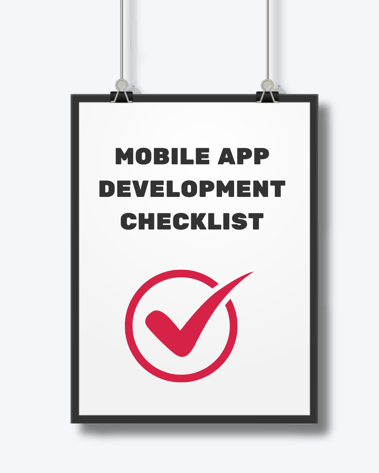These days everybody has an app idea and that is a great thing. But without a team of app developers, designers, and product managers, most future apps stall in the idea stage. Believe it or not, there is a lot you can do to test the validity of your app without spending money or time on app development. Here are 3 things that every entrepreneur should do before building the next big app.
1. SEE IF IT ALREADY EXISTS
Before you begin your product design and development, check the market. If you have an idea for an app that makes it easier to use your email as a todo list, first check out all of the todo list and email apps on the app store. Don’t be afraid of what you might find – an app that is similar in concept to your idea is actually a good thing. You can see how somebody else solved the problem of email todo lists.
If a similar app works really well, you might download the app and use it yourself. Now you don’t even need to build an app. If existing todo apps are inadequate, then figure out how you can improve upon it. Competing apps validate that the need is real.
Get A Free Copy Of 'Mobile App Development Checklist'

2. VALIDATE YOUR IDEA
Building an app to test out whether a concept is valid is like flying to the moon to figure out whether it’s habitable. Why waste the time and money when a little bit of research can tell you what you need to know. When we were working with SportMe to build the first self-adjusting marathon training app, our first question was “will anybody buy a self-adjusting plan?” Before we developed the app, we put up a simple splash page that offered custom made adjustable plans at different price points.
We used Wufoo to embed a questionnaire that helped us determine the physical ability of a given runner, then plotted a marathon training plan that fit their schedule. We put $20 a day towards google ads. We sold about 20 plans and found that at a $5 price point about 1 of 10 people who landed on sportme.com bought the app. Not only did it show our concept had clear cash value, but the high engagement rate suggested that this might be something that runners were really excited about. The best part is we spent a few hundred dollars validating our idea instead of the thousands of dollars it would have cost developing a prototype.
3. MAKE SURE THE WORK REQUIRED TO BUILD YOUR APPCAN BE DONE BY YOU
The early days of a startup are made up of long hours with little to no pay. It’s going to be hard to recruit entrepreneurs to work under these conditions so you want to be able to count on yourself to get the ball rolling. This doesn’t mean you have to specialize in website and app design and development, it just means you have to play to your strengths. Here’s how:
Apps usually fit into one of two buckets: technology apps and content apps. Technology apps like Instagram or Nike Plus sell a capability – Instagram has its photo filters and Nike Plus has its GPS tracker for runners. Once the technology is built, the value proposition is realized and the developer can sit back and watch the app get used. Updates can be made and features can be added, but the initial value proposition doesn’t require any more work. In other words, it scales beautifully.
Content Apps, on the other hand, aren’t selling a capability, they are selling data. The technology behind Yelp is not complicated, but its hard to cultivate an army of content creators and a library of content. If tomorrow everybody stopped posting reviews to Yelp the app would eventually perish.If you are a developer, build a technology app. If you are not a developer, then a content app is exactly the way to go.
Let’s say you are gluten intolerant and you want to set up a Yelp for gluten intolerant restaurants. Unfortunately, you are not a mobile design developer and you have no money. Start with an out of the box website solution like Wix or Wordpress (ask us which product is best for your concept. We never charge for advice). You can’t take on a Yelp at the national level, but you could compete in a small geographic area and then scale your product to other cities. Pick a small neighbourhood, probably the one you live in since you can at least benefit from your research, and hit the ground. Go to every restaurant that offers gluten-free options and ask if you can photograph their menu. Tell them you have a gluten-free blog and that you want to promote their restaurant.
You may even be able to negotiate a small revenue share for pointing people their way. Once you have compiled your data, start marketing! Post the site to your facebook, tell your friends, buy some google ads to see how strangers respond to your concept, and put up some flyers around the neighbourhood.
Track your data and use this to determine whether or not you are actually on to something. It will be much easier to raise a small seed round once you establish a community, and if you give users the tools to add their own gluten-free suggestions you might just get the viral ball rolling! The best part is you did it without writing a line of code.
.png?%20White%20Bake%20Sale%20Promotion%20Facebook%20Post%20(4).png&width=290&name=Simple%20Pink%20%26%20White%20Bake%20Sale%20Promotion%20Facebook%20Post%20(4).png?%20White%20Bake%20Sale%20Promotion%20Facebook%20Post%20(4).png)

COMMENTS